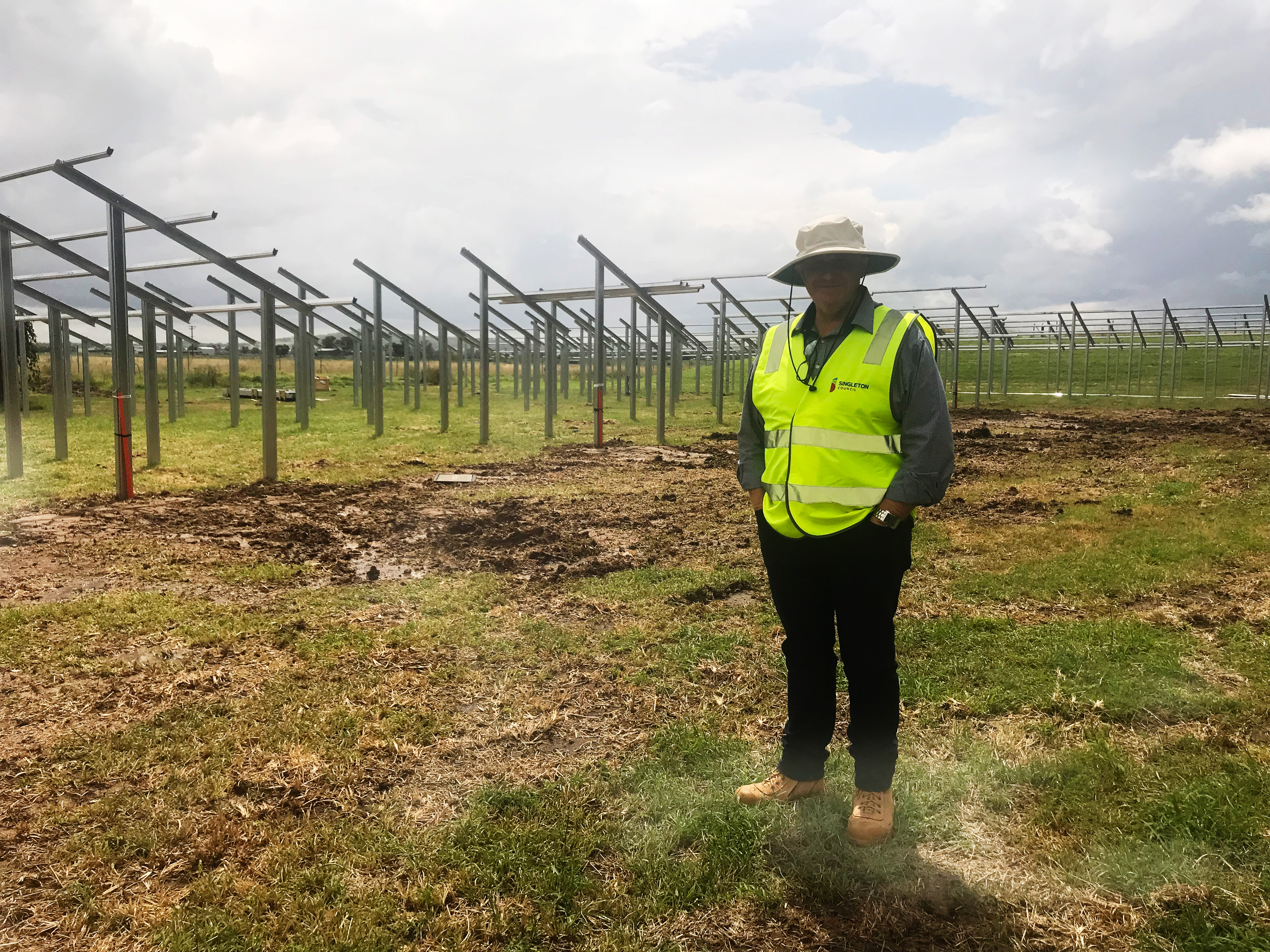
Savings and efficiencies grow as Singleton Council leads the way in sustainability initiatives
As its commitment to sustainability grows, Singleton Council’s greenhouse gas emissions and energy costs continue to shrink as small solar farms are installed at the Sewer Treatment Plant, Obanvale Water Treatment Plant and the Army Pump Station.
The installations will complete Council’s $1million solar project, with panels on Singleton Public Library, Singleton Youth Venue, Colleen Gale Childrens Services and the Waste Management Facility already connected to the grid.
Panels on Council’s Administration Building and Singleton Gym & Swim will be inspected by Ausgrid in the coming weeks before they too are connected.
Solar panels and other sustainability initiatives such as a water retention system to irrigate Townhead Park with recycled water were also key inclusions in the construction of the new $4.08million Singleton Arts + Cultural Centre, which will be officially opened at a free community event on Sunday 6 March.
Mayor of Singleton, Cr Sue Moore said the project continued an emphasis on sustainability outcomes across all of Council’s decision-making over a number of years, which have already resulted in a 31 per cent reduction in Council’s electricity usage, 29 per cent reduction in Council’s greenhouse gas emissions and a 2.4x increase in Council’s use of renewable energy between 2019/2020 and 2020/2021.
Other significant outcomes include:
- Council now purchases half of its electricity for large and small sites from the Moree Solar Farm project along with other NSW Councils through the Program for Energy and Environmental Risk Solutions (PEERS) agreement; and
- installation of 840 energy efficient LEDs as part of the Street Lighting Improvement Program established by the Southern Sydney Regional Organisation of Councils (SSROC), with a projected decrease in energy usage and emissioions from street lighting by more than 76 per cent and equating to a reduction of 244.9 tonnes of CO2 each year.
“In addition, Council is a member of the Cities Power Partnership and is working through our pledges to install renewable energy on Council buildings, implement education and behaviour change programs, adopt best practice energy efficiency measures, implement electric vehicle charging stations and set renewable energy/emissions reduction targets and sustainable energy policies,” she said.
“We know that sustainability and being conscious of our environmental footprint is important to our community, and we’ve taken significant action led by the Sustainability Advisory Committee and our Sustainability Strategy which has a strong focus on the United Nations’ Sustainable Development Goals.
“Best of all, as well as savings in emissions and energy consumption, these initiatives come with cost savings that can be redirected into services and facilities for our community.”
General Manager Jason Linnane said initiatives to make Council’s operations more efficient, more cost-effective and less impactful on the environment just made good sense.
“As well as being guided by our community, we want to set the example for how we can all play a role in taking action now to benefit the people and the environment of Singleton later,” he said.
“Council has made sustainability a key consideration in all new projects, and the new Arts and Cultural Centre is yet another case in point with the installation of solar panels worth more than $100,000 to offset the energy consumption of the building as well as a water retention system that will retain 100 per cent of water captured on the roof to be recycled for irrigation in Townhead Park.
“We’re also trialing sensor lights powered by solar at Lake St Clair Park picnic shelters to replace lights that were previously on all night, have implemented an energy efficient lighting upgrade at Howe Park, and are undertaking an aeration upgrade project at the Sewage Treatment Plant that is expected to reduce power usage by about 20 per cent.”
